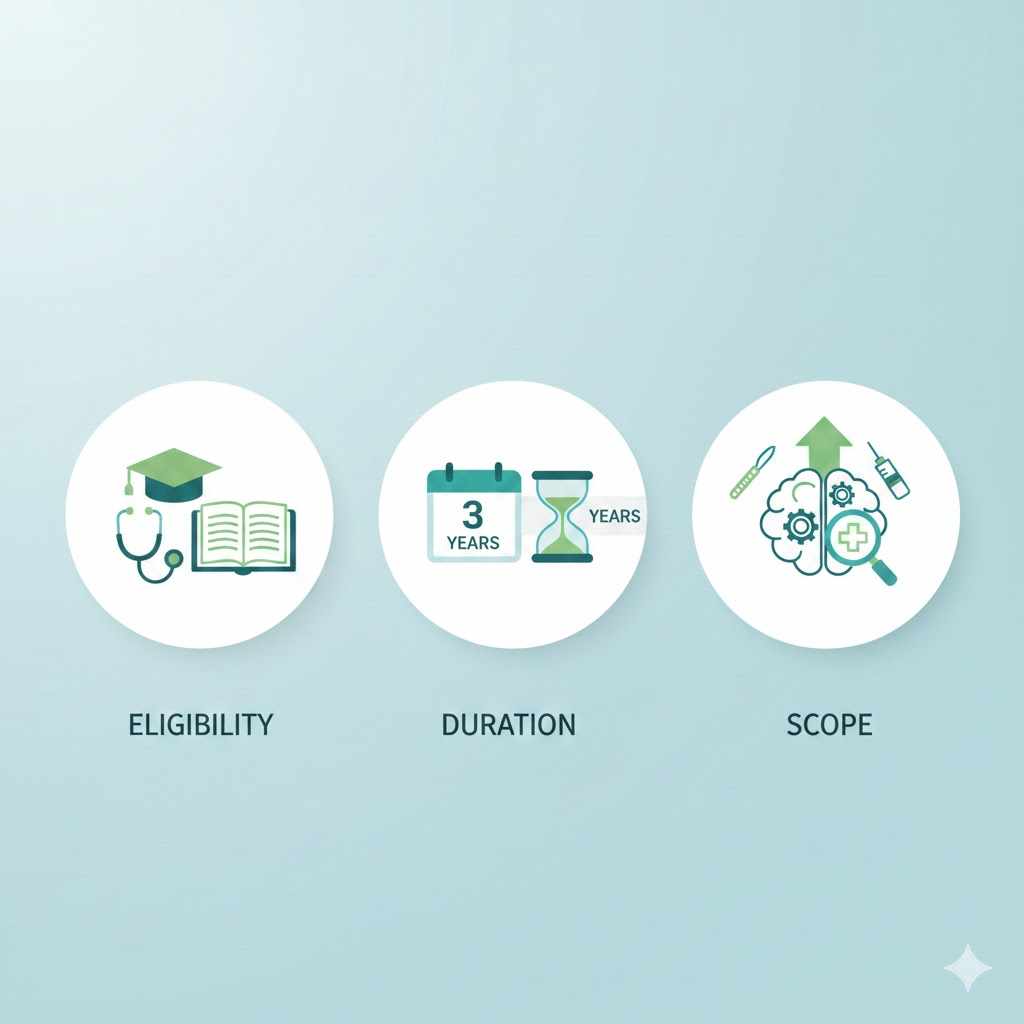
If you’re in the medical field, you already know this-it’s never really over after MBBS or nursing school. Medicine doesn’t stop changing, and honestly, if you don’t keep up, it’s easy to fall behind. New treatments, new machines, new guidelines… everything keeps evolving so fast. That’s why upgrading your clinical skills has become so, so important.
These days, there are tons of medical courses designed for doctors, nurses, and other healthcare workers who want to keep learning and growing. Some are short-term, some online, some proper hands-on fellowships. The point is-each one helps you become sharper, more confident, and better at what you do every single day.
Let’s talk about some of the best options out there.
Why You Should Keep Enhancing Your Clinical Skills
To be fair, learning in medicine never really ends. You treat patients, you see new problems, and half the time you realise you still have so much to learn. Upgrading your clinical knowledge helps you:
Stay updated with the latest guidelines and research
Handle complicated cases more confidently
Improve patient safety and care quality
Build stronger decision-making skills
And yeah… it also helps your career move faster
You can’t expect to grow if your skills stay stuck where they were five years ago, right?
Different Kinds of Medical Courses You Can Take
There isn’t one “perfect” course for everyone. What’s right for you depends on your area of interest, time, and how deep you want to go. Let’s look at a few popular paths healthcare professionals are taking nowadays.
1. Fellowship Programs
Now, this is probably the best route if you’re a doctor who wants proper hands-on experience. Fellowships go beyond textbook knowledge. You actually work in hospitals, manage real cases, and learn from specialists.
Some of the top fellowship options are:
Emergency Medicine
Critical Care
Diabetology
Cardiology
Infectious Diseases
Most fellowships last somewhere between six months to two years. They’re perfect if you want to specialise without jumping into another long postgraduate program.
2. Continuing Medical Education (CME)
CME courses are great if you’re already practising and don’t want to take long breaks. These short programs focus on refreshing your knowledge-new medicines, treatment protocols, or health technology updates.
Some useful CME topics include:
Advanced life support
Pharmacology updates
Public health management
Patient safety and hospital protocols
Telemedicine
A lot of hospitals and medical councils even make CME credits mandatory now, which shows how important they are for keeping skills up-to-date.
3. Online Medical Courses
Let’s be honest-online learning changed everything. For busy doctors and nurses, affordable online medical courses are a blessing. You can study at your own pace, from anywhere, and still get certified.
Popular online courses include things like:
Clinical research and biostatistics
Digital health and telemedicine
Artificial intelligence in healthcare
Healthcare management and leadership
Diagnostic imaging
The best part? You can keep working full-time while studying. No need to quit your job or shift cities.
4. Skill-Based and Simulation Training
Sometimes, reading or watching videos isn’t enough. You’ve got to do it to really learn it. That’s where skill labs and simulation-based training come in.
They let you practice emergency situations, surgeries, or critical care scenarios in a safe setup-without putting real patients at risk. It’s one of the most effective ways to build muscle memory and stay calm during real emergencies.
5. Public Health and Preventive Medicine Courses
These days, public health is becoming a huge focus area. Courses in this field prepare you to deal with large-scale problems like disease outbreaks or community health programs.
You could look into:
Master of Public Health (MPH)
Certificate in Epidemiology
Health promotion programs
It’s ideal for those who want to move beyond hospital walls and make an impact at a national or global level.
6. Leadership and Healthcare Management Courses
Not everyone wants to stay in clinical roles forever-and that’s okay. Some doctors and nurses naturally grow into leadership or admin positions.
Courses in healthcare management can teach you things like:
Hospital operations
Policy and planning
Financial management
Patient satisfaction strategies
Basically, how to run healthcare systems smoothly and efficiently.
Why These Courses Are Worth It
Honestly, investing in these kinds of programs can change your whole career. You gain confidence, get better jobs, and even earn more respect from colleagues.
Some quick benefits:
Opens doors to higher-level or specialised roles
Makes you more confident with tough cases
Keeps you up to date with the latest practices
Helps you connect with experts and peers
Gives you international exposure if you choose global certifications
At the end of the day, it’s about becoming the best version of yourself as a healthcare provider.
How to Choose the Right Course for You
Alright, so how do you pick the right one? Here’s what I’d say-think about what you actually enjoy doing and what fits into your life right now.
A few quick things to check:
Accreditation: Always make sure it’s recognized by a reputed board or university.
Curriculum: Read through the topics carefully-are they relevant to your field?
Duration: Don’t pick a course that’ll mess up your work-life balance.
Practical Learning: Look for real case discussions or hands-on sessions.
Reviews: Check what previous students say about it.
Don’t just go for what’s “trending.” Choose what truly adds value to your practice.
Technology’s Role in Modern Medical Learning
You can’t ignore how much tech has changed learning. I mean, from virtual reality training to AI-based diagnostics, it’s crazy how much is available now.
Online platforms are using interactive videos, patient simulations, and real-time assessments-so it’s not boring theory anymore. You actually learn how to apply it in real-life situations.
How Skill Enhancement Helps in Real Practice
Let’s face it-better training means better patient care. When you know what you’re doing, you make faster, safer, and smarter decisions. You also handle pressure better.
It helps you:
Diagnose faster
Manage emergencies more confidently
Communicate clearly with patients and families
Reduce chances of medical errors
It’s not just about certificates-it’s about saving lives more efficiently.
FAQs
1. Which short-term medical courses are best for doctors?
Courses like Fellowship in Emergency Medicine, Critical Care, and Diabetology are some of the top choices-short duration but high value.
2. Can I study online while working full-time?
Of course. Many doctors and nurses do that now. Online courses are designed for working professionals.
3. Is fellowship after MBBS possible without NEET PG?
Yes, many institutes in India offer post-MBBS fellowships without NEET PG.
4. Do CME courses really make a difference?
Totally. They help you stay relevant and improve your day-to-day clinical decision-making.
5. What about nurses or paramedics-any courses for them?
Definitely. Courses in Emergency Care, Critical Care, and Public Health are great for nurses and allied professionals.
Final Thoughts
If there’s one thing I’ve learned in this field, it’s that medicine never stands still. You can’t either. Whether you’re a fresh graduate or a senior consultant, there’s always something new to learn.
Taking up a good medical course is more than just career development-it’s a way to keep growing as a person and a professional. You’ll treat patients better, think clearer, and honestly… feel more confident every time you walk into a ward or clinic.
Keep learning, keep improving-it’s what keeps us human in this ever-changing world of medicine.



Write a comment ...